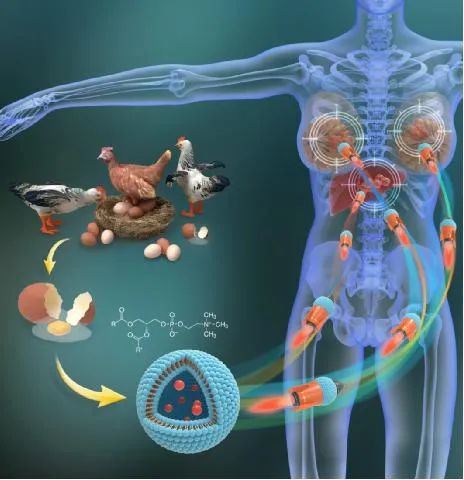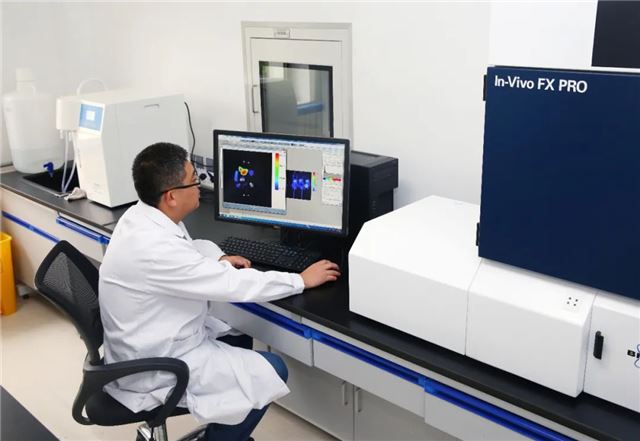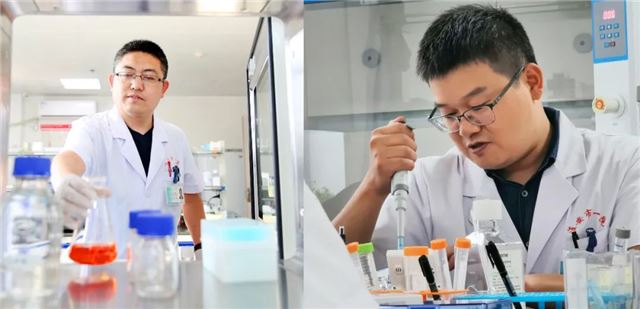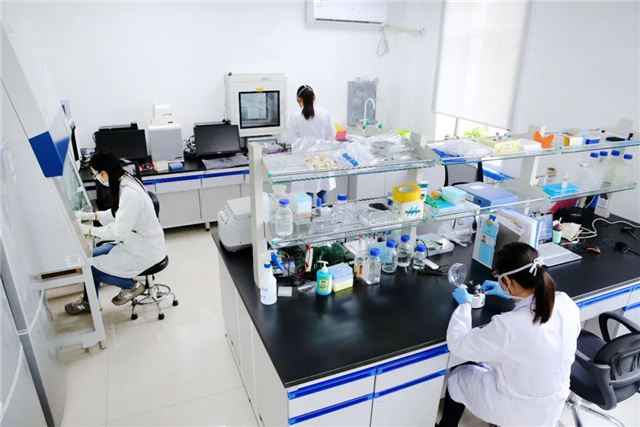

化疗仍然是目前肿瘤治疗的重要手段之一,随着肿瘤药物研究的深入,抗肿瘤纳米药物在肿瘤综合治疗中的应用日渐成熟。纳米药物可在提升化疗药物肿瘤分布的同时有效减轻化疗毒副作用,成为肿瘤靶向治疗的主要策略之一。

近日,南京医科大学附属淮安第一医院(淮安市第一人民医院)中心实验室肿瘤纳米药物课题组在抗肿瘤纳米脂质体药物研究中取得重要进展。实验室人员以天然蛋黄中的脂质为基础制备了可有效递送化疗药物、核酸制剂等的纳米药物载体(Egg yolk lipid-derived nanovectors, EYLNs)。该载体粒径约 50 nm,可高效内化肿瘤细胞;因该载体脂质来源天然,不会产生机体毒性。更为重要的是,小鼠肿瘤模型显示,EYLNs 载体良好的实体瘤的高通透性和滞留效应(EPR 效应)显著增强了化疗药物(Doxorubicin)在肿瘤组织中的分布,进而实现对小鼠乳腺癌及肝癌的有效抑制作用。同时,主动靶向修饰(如叶酸)可进一步促进纳米药物在肿瘤组织中的分布。

综上,该天然蛋黄脂质抗肿瘤纳米载体不仅毒性小、载药量高,更为关键优势是具有良好的实体瘤高通透性和滞留效应,具有极大的临床转化应用前景。该成果以“Nanovector Assembled from Natural Egg Yolk Lipids for Tumor-Targeted Delivery of Therapeutics”为题发表在 ACS Applied Materials & Interfaces 杂志上(2020,12,7:7984-7994. 期刊影响因子:8.45,SCI 材料一区)。共同第一作者为南京医科大学附属淮安第一医院罗超教授、硕士研究生唐桩、隽雅丽。论文通讯作者为南京医科大学附属淮安第一医院王其龙教授、高勇教授及张莉教授。

论文信息
【标题】Nanovector Assembled from Natural Egg Yolk Lipids for Tumor-Targeted Delivery of Therapeutics
【作者】Zhuang Tang, Chao Luo, Yali Jun, Mengchu Yao, Mengyan Zhang, Kang He, Luhao Jin, Jianshe Ma, Song Chen, SuAn Sun, Mingyue Tao, Lianshu Ding, Xiaoyang Sun, Xiaofei Chen, Li Zhang*, Yong Gao*, Qi-long Wang*
【期刊】ACS Applied Materials & Interfaces
【日期】19 February 2020
【DOI】10.1021/acsami.9b22293
【链接】
https://pubs.acs.org/doi/full/10.1021/acsami.9b22293
【摘要】Nanomedicine uses nanotechnology-based strategies for precision tumor therapy, including passive and ligand-mediated active tumor targeting by nanocarriers. However, the possible biotoxicity of chemosynthetic nanovectors limits their clinical applications. A novel natural egg yolk lipid nanovector (EYLN) was developed for effective loading and delivery of therapeutic agents. Lipids were extracted from egg yolks and reassembled into nanosized particles. EYLNs’ stability, cellular uptake, toxicity, and delivery capacity for therapeutic agents were evaluated in vitro. The systemic toxicity and biodistribution of EYLNs were analyzed in normal mice, and the therapeutic effects of doxorubicin (Dox)-loaded EYLNs were evaluated in mouse breast cancer and hepatoma models. EYLNs had a particle size of ∼40 nm and a surface ζ-potential of −45 mV and were effectively internalized by tumor cells, without showing toxicity and side effects in vitro and in vivo. Importantly, their excellent permeability and retention effect significantly enhanced the distribution of EYLNs at tumor sites, and EYLN-Dox effectively inhibited the tumor growth in both mouse models. Targeted modification with folic acid further promoted vector-mediated drug distribution in tumors. This study demonstrates that lipids with specific proportions in the egg yolk can be used to construct natural drug vectors, providing a new strategy for nano-oncology research.
本文转自:科研圈